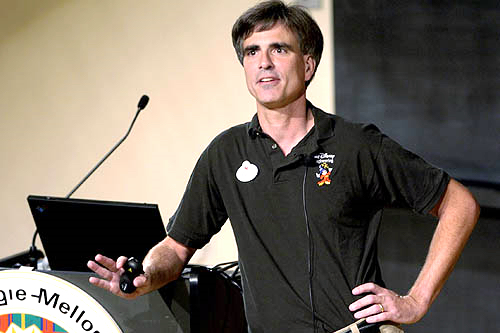From a Genius
|
When we think about Albert Einstein, there is the normal list of issues about which he dealt. The two items most remembered by the average American are E=mc2 and his letter to FDR warning him about the Nazis working on an atomic bomb. However, it was not long after the United Stated developed the bomb that he turned against its use. Additionally, he became very much a pacifist. 
I have taken dozens of history classes in both college and grad school. In addition, I have taught that many at the college level. In all those years, I have never read anything about Einstein and his dealing with racism. When I came across an article about that topic, I had two reactions. The first was total surprise. However, once I thought about it for a moment, it made perfect sense. Einstein left Germany in 1933 due to Hitler and the Nazi's racism directed at Jews. Further, in 1936 at the Berlin Olympics, Jesse Owens won four gold medals in track and field. 
Hitler didn't like Jews or anyone else that was not of the Arian race, which included Jesse Owens. Albert Speer said regarding the Berlin Olympics that Hitler "was highly annoyed by the series of triumphs by the marvelous colored American runner, Jesse Owens. People whose antecedents came from the jungle were primitive, Hitler said with a shrug; their physiques were stronger than those of civilized whites and hence should be excluded from future games." Therefore, Einstein could identify with blacks due to Jews being discriminated against by Hitler and the Nazis. Einstein said regarding all forms of discrimination, "We cannot solve our problems with the same thinking we used when we created them." What is to his credit was that he not only said it but worked at resolving discrimination in America. Lincoln University, PA gave Einstein an honorary degree. The interesting thing is that Lincoln University was the first prominently black university in America. Additionally, I visited Lincoln while spending summers down on my cousins' farm in Oxford, PA only a couple miles from Lincoln. Since my cousins were Quakers, they wanted me to learn early about the issues facing America with racism and segregation. 
Einstein actually delivered several lectures at Lincoln. Einstein said, while at Lincoln, that segregation is "a disease of white people." During his life in the States, Einstein worked at addressing that disease. He met many black leaders like W.E.B. Dubois and Marian Anderson. However, of all friends within the black community, Paul Robeson was for him the most important. Einstein and Robeson shared a great deal in common. Starting in 1935, they met and discussed issues ranging from Hitler in Germany, Franco in Spain, and to their love for music. Even after WWII, both Einstein and Robeson addressed the killings of black servicemen who returned to the US. Robeson started the organization, American Crusade to End Lynching, which Einstein supported. 
Vice-president Henry Wallace, Albert Einstein, Frank Kingdon, a columnist, and Paul Robeson From the early 30s to his death in the mid-50s, J. Edgar Hoover had the FBI looking into his actions and speeches. This period of time, especially after WWII, was when J. Edgar Hoover and the FBI thought that Einstein was a very real threat to the American lifestyle. Einstein died in April 18, 1955 having said to his doctors who wanted to do another operation on him, "I want to go when I want. It is tasteless to prolong life artificially. I have done my share; it is time to go. I will do it elegantly." It seems that no matter what Einstein faced, he understood the reality of human life, even his own. Finally, Einstein was correct about many things from science to life itself. I recently read an item about scientists having found that he was correct about gravitational waves in deep space. 
I kind of understand it now after looking at this picture. As soon as I figure out more about what gravitational waves in deep space are, I'll write an essay on that topic. My working title will be Waving at Gravitation.
Visit the The Last Lecture page to read more about this topic.
Visit the Dancing with Death page to read more about this topic.
Visit the My Hauntings page to read more about this topic. 03/18/16 Follow @mountain_and_me |









